Who in the world is changing it through free software? Nominate them today!
mercredi 26 octobre 2016 à 22:01Nominations for the 19th annual Free Software Awards opened at LibrePlanet 2016, right after the most recent Free Software Awards were presented -- and we need you to nominate more projects by November 6th, 2016 at 23:59 UTC. For details see instructions below.
If you know a free software contributor or project that deserves celebration, don't hesitate to nominate them! This is your opportunity to publicly recognize people and projects that have inspired you. Your nominations will be reviewed by our awards committee and the winners will be announced at LibrePlanet 2017.
Award for the Advancement of Free Software
The Free Software Foundation Award for the Advancement of Free Software is presented annually by FSF president Richard Stallman to an individual who has made a great contribution to the progress and development of free software, through activities that accord with the spirit of free software.
Last year, Werner Koch was recognized with the Award for the Advancement of Free Software for his work on GnuPG, the defacto tool for encrypted communication.
Award for Projects of Social Benefit
The Award for Projects of Social Benefit is presented to a project or team responsible for applying free software, or the ideas of the free software movement, in a project that intentionally and significantly benefits society in other aspects of life.
We look to recognize projects or teams that encourage people to cooperate in freedom to accomplish tasks of great social benefit, and those that apply free software ideas and lessons outside the free software community. A long-term commitment to one's project (or the potential for a long-term commitment) is crucial to this end.
This award stresses the use of free software in the service of humanity. We have deliberately chosen this broad criterion so that many different areas of activity can be considered. However, one area that is not included is that of free software itself. Projects with a primary goal of promoting or advancing free software are not eligible for this award (we honor individuals working on those projects with our annual Award for the Advancement of Free Software).
We will consider any project or team that uses free software or its philosophy to address a goal important to society. To qualify, a project must use free software, produce free documentation, or use the idea of free software as defined in the Free Software Definition. Projects that promote or depend on the use of non-free software are not eligible for this award. Commercial projects are not excluded, but commercial success is not our scale for judging projects.
Last year, the Library Freedom Project received the award, for their work teaching librarians about surveillance threats, privacy rights and responsibilities, and offering digital tools to stop surveillance, all with the aim of creating a privacy-centric paradigm shift in libraries and the local communities they serve.
Eligibility
In the case of both awards, previous winners are not eligible for nomination, but renomination of other previous nominees is encouraged. Only individuals are eligible for nomination for the Advancement of Free Software Award (not projects), and only projects can be nominated for the Social Benefit Award (not individuals). For a list of previous winners, please visit https://www.fsf.org/awards. Current FSF staff and board members, as well as award committee members, are not eligible.
Winners will be decided by a committee to be announced, including several previous winners. Last year's committee was:
- Suresh Ramasubramanian
- Rob Savoye
- Jonas Öberg
- Fernanda Weiden
- Wietse Venema
- Matthew Garrett
- Vernor Vinge
- Hong Feng
- Andrew Tridgell
- Marina Zhurakhinskaya
Instructions
After reviewing the eligibility rules above, please click on the links below to submit your nominations. All nominations need to be submited before Sunday, November 6th, 2016 at 23:59 UTC.
-
Nominations for the Award for Projects of Social Benefit
-
Nominations for the Award for the Advancement of Free Software
Attend the Free Software Awards at LibrePlanet 2017
Want to be in the room when the winners are announced? Registration is already open for the LibrePlanet conference, March 25-26 2017, in the Boston area. You can meet the award winners and take part in a program devoted to the world of free software. Remember: Free Software Foundation members attend LibrePlanet gratis!
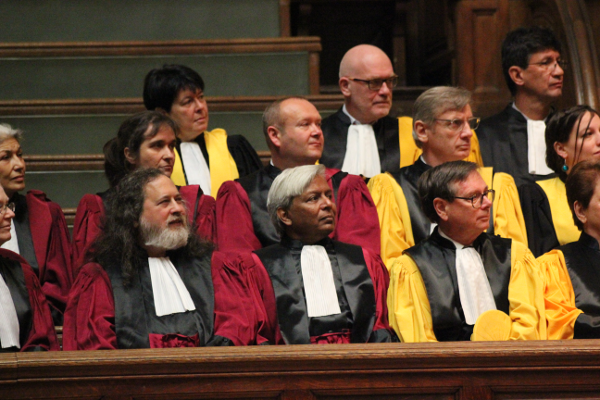
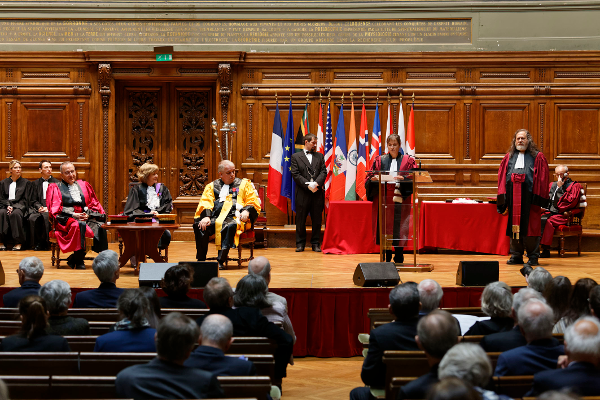
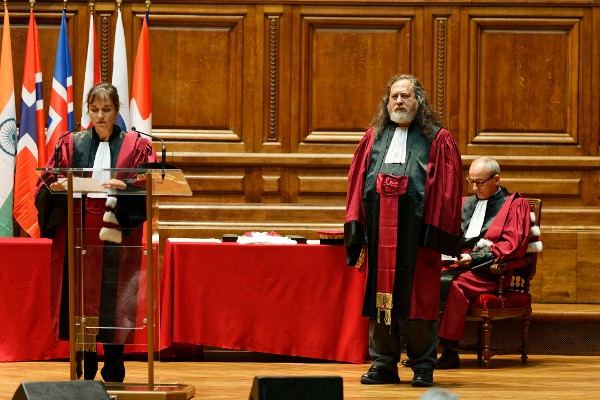
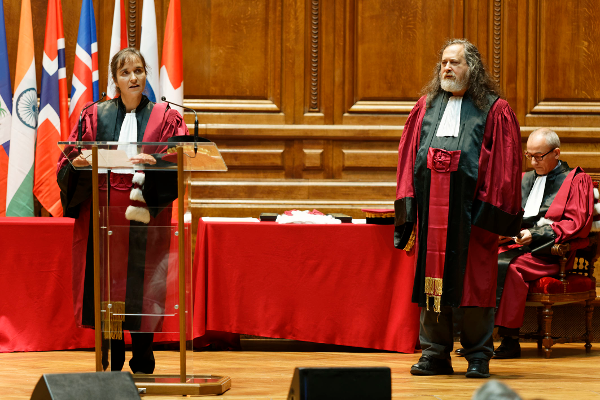
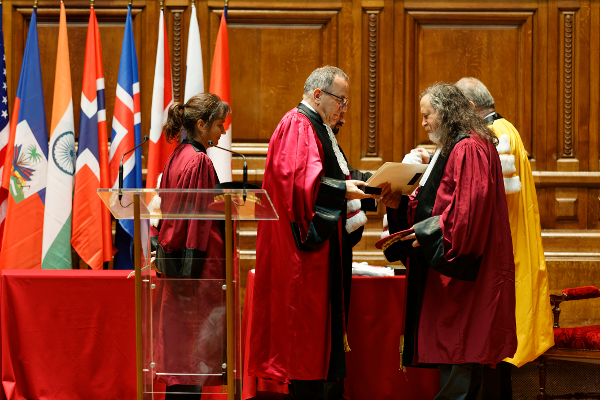
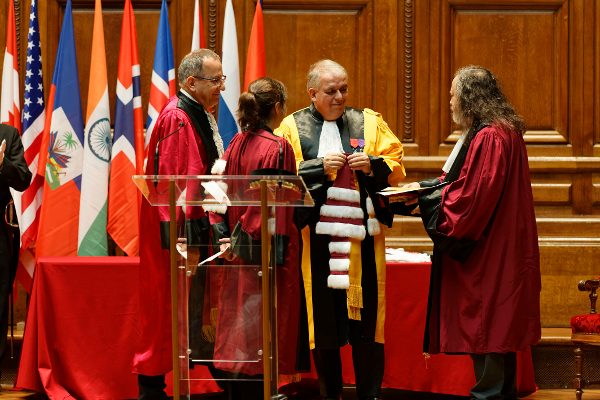
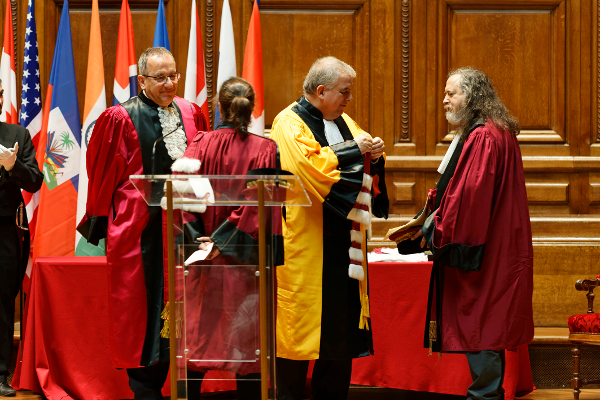
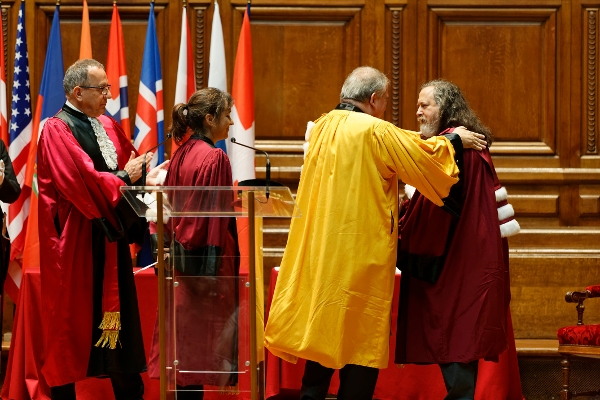
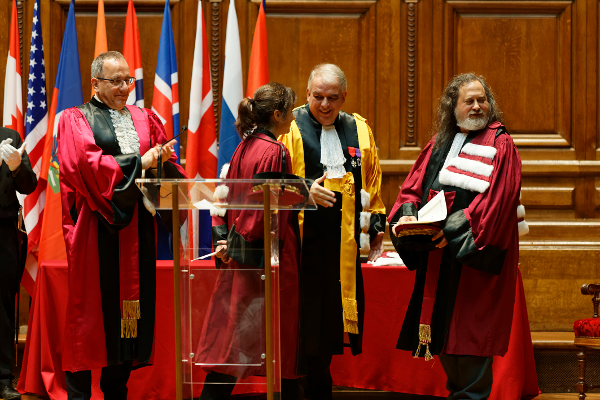
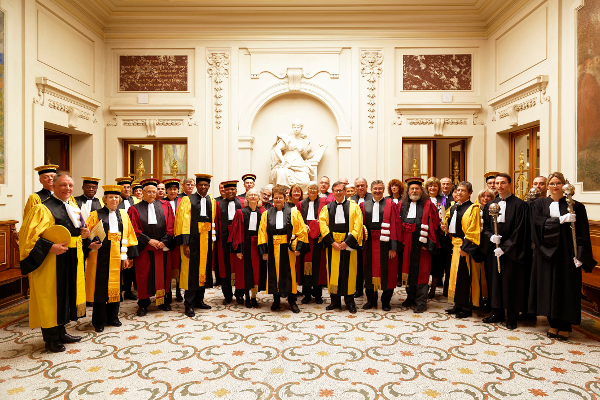
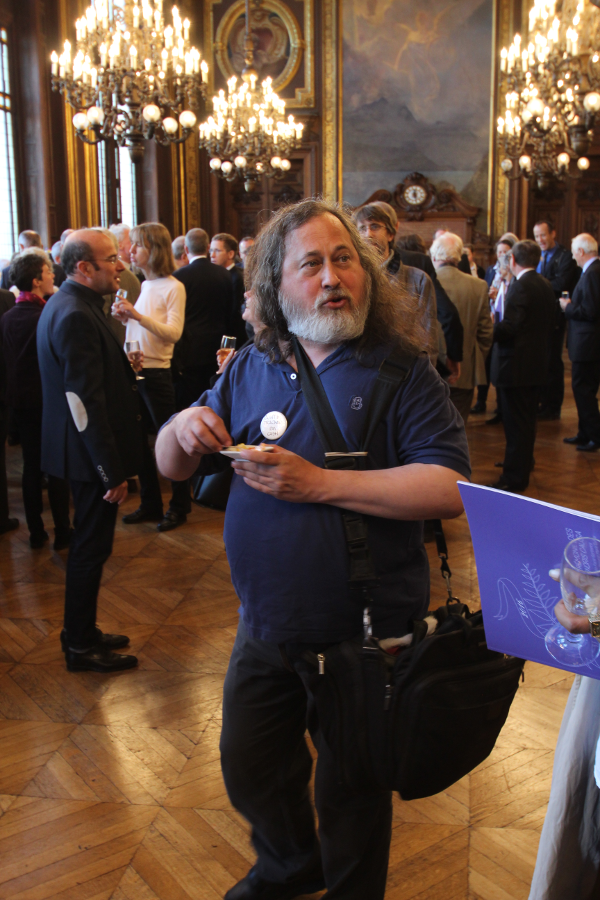
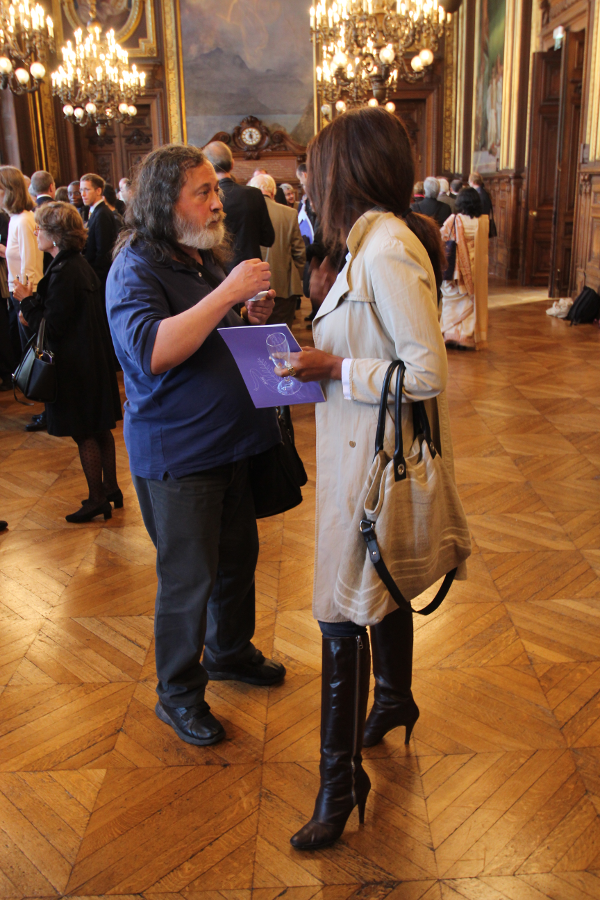 RMS enjoying a snack and socializing at the post-ceremony reception.
RMS enjoying a snack and socializing at the post-ceremony reception.